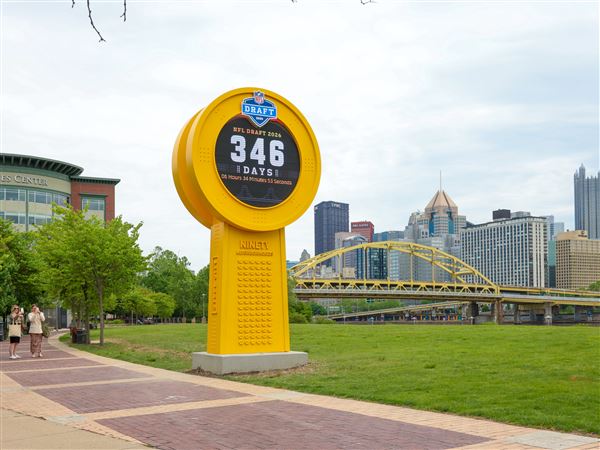Mayor Bill Peduto and Gov. Tom Wolf were all smiles Monday at the announcement of Pittsburgh’s removal from Act 47 financially distressed status. However, the end of 14 years of oversight is more a political triumph than an economic one, and the congratulatory handshaking should not overshadow a key point: Financial distress is a condition communities can experience at any time, not a place they fall into once.
Oversight was not a usurpation of the city’s sovereignty when Pittsburgh’s budget tanked in 2003. It helped the city crawl back from a web of problems that caused layoffs, the shuttering of pools and recreation centers, and a deferment of infrastructure spending that’s come home to roost in the form of crumbling roads, dilapidated sets of city steps and rickety bridges. If left in place, it would have continued to pay dividends to a city now on the upswing.
Although officials speak of new safeguards to prevent backsliding — maintaining certain fund balances, for example — the city is just one or two bad breaks away from another financial pickle. In his fifth year of leading the city, Mr. Peduto has yet to ink a deal with big nonprofits for payments in lieu of real estate taxes. Critics warn that a new hike in the real estate transfer tax could tamp down investment. Stock market volatility would affect the solvency of chronically underfunded pension plans. Should revenues slip, expenses spiral or the city overextend itself on a new venture, such as any of the social justice initiatives Mr. Peduto has in mind, the wolf will be at the door again.
While some of the players may have changed, Pittsburgh still has the same government that got the city into Act 47 in the first place.
Pittsburgh’s two sets of overseers rode herd on the city’s budget and spending practices and pushed for various kinds of efficiencies. In later years, one oversight body, the Intergovernmental Cooperation Authority, generated controversy with poor financial practices of its own. That gave heft to calls to liberate the city from Act 47. Across the 14 years of oversight, however, the overseers did their jobs. In 2010, for example, the ICA rejected then-Mayor Luke Ravenstahl’s budget because it was predicated on a privatization of parking assets that had not — and never did — take place. Overseers also conducted studies of the city’s public safety bureaus and pushed the city to adopt better financial management practices.
Oversight resulted in a series of recovery plans that limited outlays — to the dismay of some of the city’s unionized employees — but the plans also demanded improvement in dozens of other areas. Overseers tracked the city’s progress on items that ranged from setting up a risk management program to creating a streamlined permitting process in building inspection to involving the fire bureau in rescue work. Oversight may be gone, but such external levers of change are still needed.
Now, as city Controller Michael Lamb said, the city must “focus on those factors that not only keep us solvent but also make us competitive. We need to address the continued loss of population through an honest discussion about taxes, public safety and public education. We need to increase pressure on our largest employers on the issue of wages so that we can actually grow the city’s middle class.”
Those are all issues on which oversight might have helped.
First Published: February 15, 2018, 5:00 a.m.














